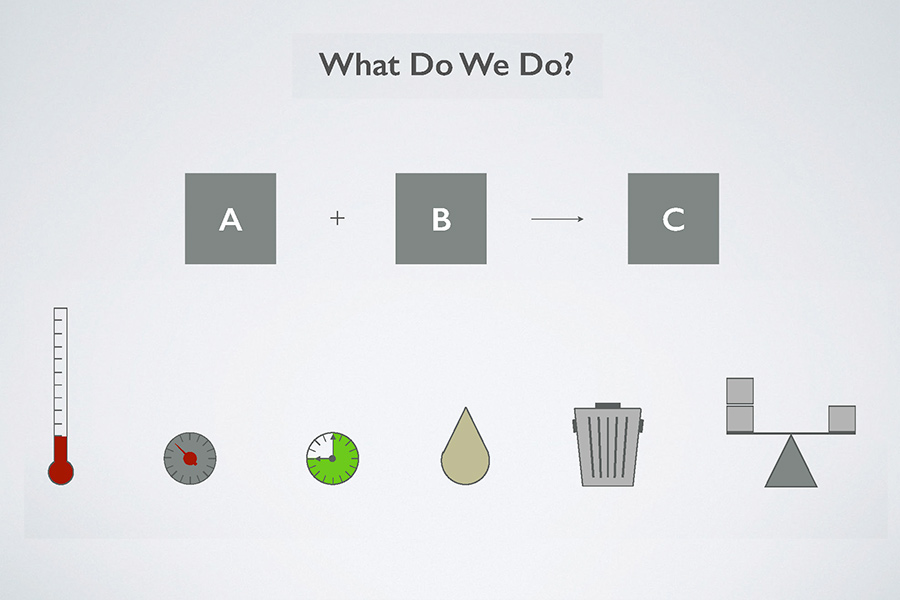When Knox biology professor James Mountjoy asks for student volunteers to give presentations about their science research, he knows that it's not unlike a "mission impossible."
"Because you are exploring questions that nobody has ever answered before, giving a really good presentation in the sciences is a challenge," Mountjoy says.
"Even though the presentations are attended primarily by science students and faculty, most of the audience is not from your specialty," Mountjoy says. "You have to cut through the complexities and jargon to make your research understandable to a broad audience."
So, when a student gets an award for the best research presentation, it takes more than throwing some big words at the audience and some PowerPoint slides onto the data projection screen.
"I always try to put myself in the position of people who don't know what I'm talking about," says Alex Volkov, senior chemistry major, who won the annual Sigma Xi Award for the best presentation in Knox's Summer Science Seminar Series. Two dozen presentations spanned from June through August. Mountjoy and chemistry professor Lawrence Welch presented the award in November.
"Alex did a great job," Mountjoy says.
Volkov says he aimed to make his topic accessible, despite a title that would baffle most outside the field -- "Synthesis, Characterization and Catalytic Activity of Iron Complexes Supported by Conjugated Ligands."
OK, Alex, explain 'catalyst':
"In a chemical reaction, you combine A and B, to get C," Volkov says. "Every reaction needs a bump to get going, to make A and B get together. This bump is called 'activation energy.' In some cases, the activation energy is high. You have to apply lots of heat or pressure, so the pieces will collide together.
"The catalyst lowers this activation energy, and makes the reaction easier to carry out -- especially energy-wise and time-wise. It makes a chemical reaction go smoother, faster, more efficient."
Where does iron fit into the picture?
"In industry, there are some common catalysts -- nickel, palladium, platinum," Volkov says. "But they are toxic and expensive. In our lab, we are trying to develop new ways to use iron compounds as catalysts. Iron is much less expensive and much less toxic -- our blood runs on hemoglobin, which is an iron compound."
I'm afraid to ask... what are 'conjugated ligands'?
"Eventually, my presentation does get into the details, the complex molecular structure of what we're working on. 'Ligands' are the bonds between the atoms. 'Conjugated' refers to the arrangements of the ligands, which affects the rigidity of the structure and the effectiveness of the catalyst."
Volkov won the award with his "clear and interesting presentation, clean graphics and enthusiasm," says Mountjoy.
Three tips from Alex Volkov on giving a great presentation:
- More pictures, less text. A lot of presenters use too much text.
- You've heard this before, but you should definitely practice. At least three times.
- Make sure your language is targeted to your audience. Look for analogies, metaphors that will simplify things, and break down complex ideas into things that the audience already understands.
Above: Alex Volkov transfers nitrogen, stored in liquid form, between containers for use in his research; below, Alex in his lab, explaining his work to new students, and receiving a presentation award from biology professor James Mountjoy and chemistry professor Lawrence Welch.



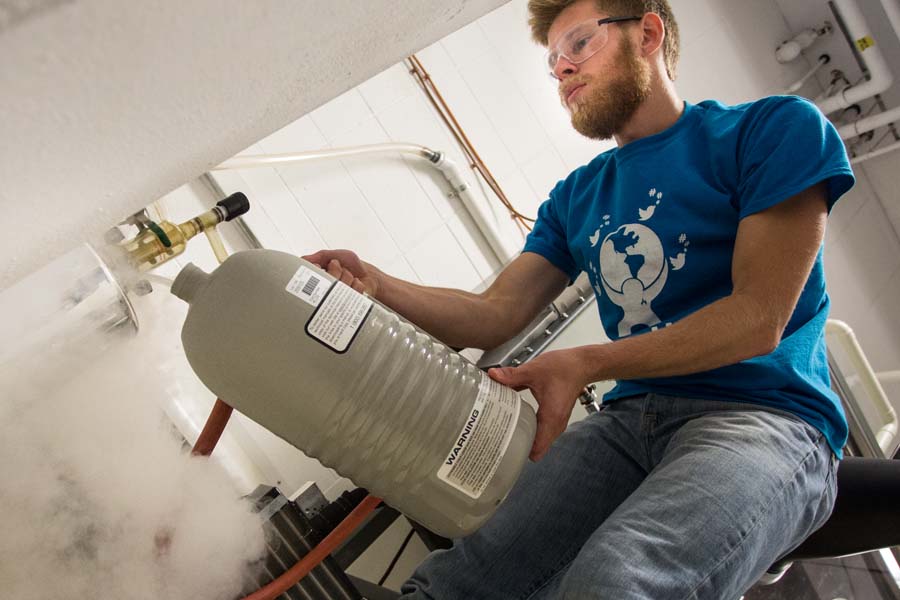
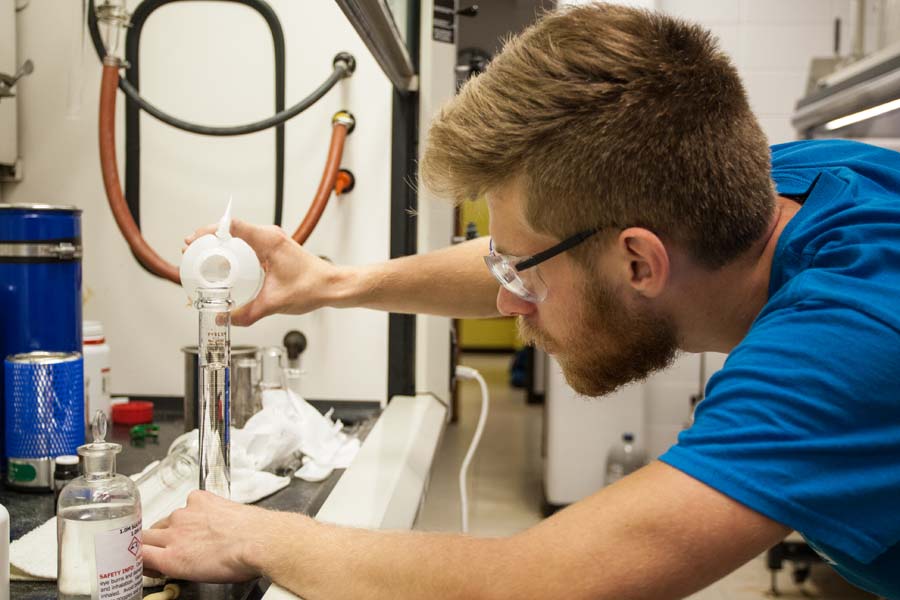
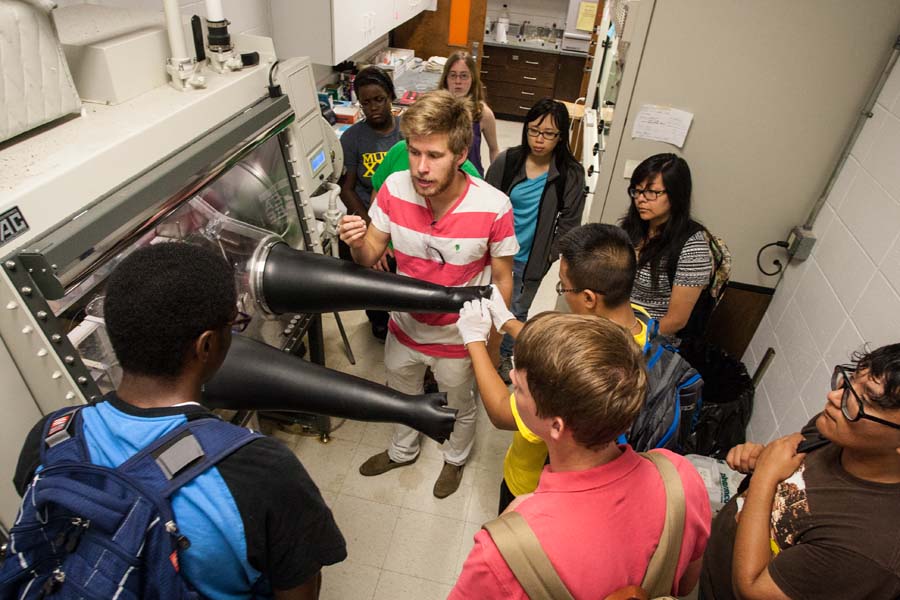
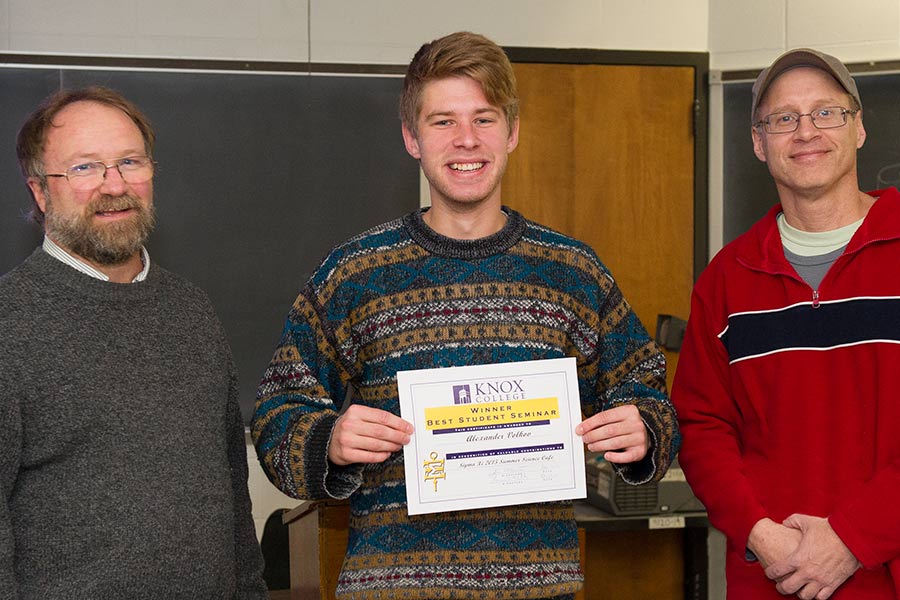
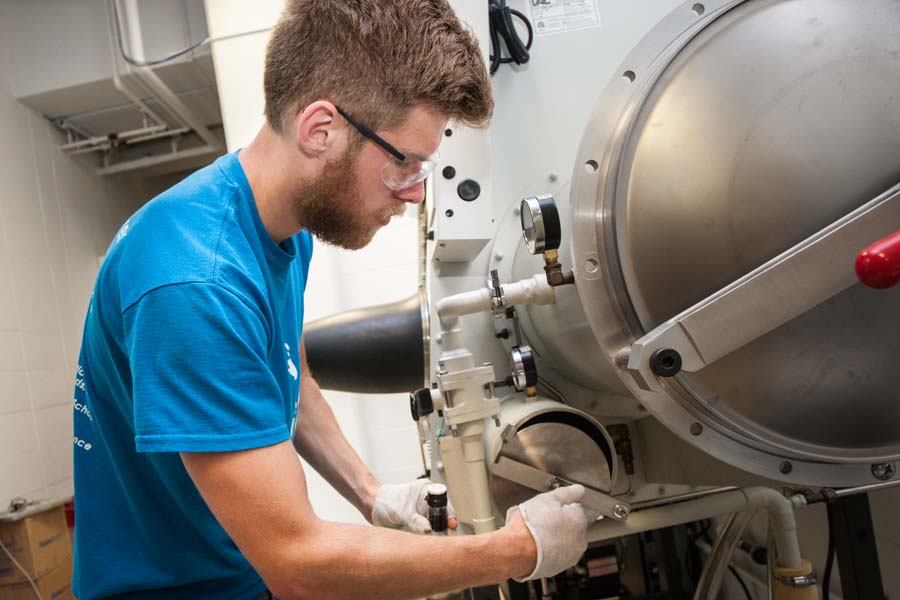
 Presentation tips: practical examples, pictures, practice - Alex Volkov
Presentation tips: practical examples, pictures, practice - Alex Volkov